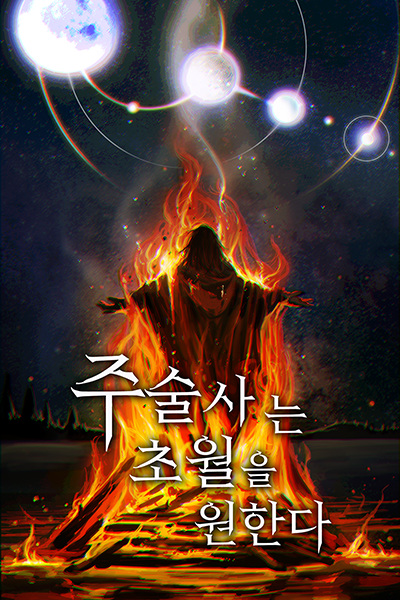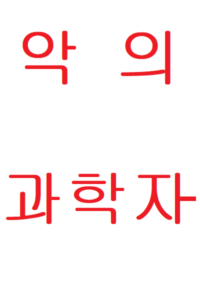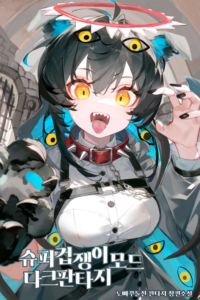The Starlight Grace Ritual, a shamanic spell created after seeing a white glowing elephant bathed in starlight, was a ritual believed to possess the powers of health and recovery due to the magical symbolism of the elephant, considered a sacred animal. Additionally, it was imbued with the element of fortune, providing a slight benefit of luck.
However, not everything can be good.
The effect of this shamanic ritual was not to “bestow the symbolism of the elephant,” but rather to “make one resemble an elephant to harness its symbolic power,” which meant that as a price, the shaman would become like an elephant.
Elephants have tusks.
Elephants have rough and hard skin.
Elephants are herbivores.
Humans do not have tusks.
Humans have soft skin.
Humans are omnivores.
Elephants and humans are similar but different beings.
Yet one of the principles of magic is similarity.
Similar things beget similar things, and like things call upon like things.
This is called homoeopathic magic.
And by this principle, humans come to resemble elephants.
Humans do not have tusks, but since they have teeth, the teeth grow to resemble tusks.
Humans have soft skin, but it becomes rough and hard like an elephant’s.
Humans can eat vegetables, so they transform to eat only a vegetarian diet.
The Starlight Grace Ritual gives three benefits in exchange for three costs, a most straightforward spell.
Resemblance.
It causes two teeth to grow where there were none, makes the skin rough and hard, and for a time, makes one consume only a vegetarian diet.
However, making the skin rough and hard can be managed with care, and the vegetarian diet is not a problem as there are plenty of vegetarian options available. Even in the mercenary life, where one needs to perform significant activities with minimal rations, vegetarian combat rations are well developed, so this cost is not much of an issue in modern times.
The real problem was the growth of new teeth, specifically wisdom teeth.
Jinseong was unlucky; despite never falling in love, he had three wisdom teeth removed during middle school and had to have more removed due to the ritual.
When he learned of the cost of the Starlight Grace Ritual, he cursed.
“Growing wisdom teeth is truly terrible. With this, I have now had five wisdom teeth removed.”
However, with shamanic rituals, one never knows what the price will be.
Jinseong just considered himself unlucky and went to the dentist to have his wisdom teeth removed.
And when he performed the second ritual, he tried hard to rationalize it.
“Another wisdom tooth has grown. I should be grateful that it grew in a normal position, as it could have grown under the eye if I were unlucky.”
Seven wisdom teeth removed.
Wisdom teeth could be used as materials for spells, so it wasn’t all bad, but…
For Jinseong, who remembered having a wisdom tooth removed with insufficient anesthesia, it wasn’t a pleasant price to pay.
Yet, once again, he blamed his bad luck for having to pay the same price twice and thought nothing more of it.
However, when the same price came up during the third ritual, he sensed something was amiss.
“Isn’t the price exactly the same?”
Two wisdom teeth.
Roughening skin.
Forced vegetarianism.
All three rituals had the same outcomes.
What was even more peculiar was that the locations where these costs manifested were the same.
The wisdom teeth grew on both upper sides.
The skin roughened on the hands and feet.
“Three rituals. Three identical costs. Can this be called a coincidence?”
Jinseong immediately began experimenting.
He used the Starlight Grace Ritual a fourth time.
The wisdom teeth grew in the same place, and the skin on his hands and feet roughened.
He used the Starlight Grace Ritual a fifth time.
The wisdom teeth grew in the same place, and the skin on his hands and feet roughened.
This repetition of the same costs, which could not be dismissed as a mere coincidence, continued up to the tenth attempt, and only then did Jinseong become convinced that the Starlight Grace Ritual demanded the same price each time.
However, a question arose.
Why hadn’t other shamans discovered something so easily noticeable as this?
Could this be a unique phenomenon visible only to him, or peculiar only to this spell?
To verify this, Jinseong informed another shaman about this ritual.
That shaman, considering the spell to have minor effects and not such a high price, accepted it without much resistance….
And paid a different price than Jinseong.
The shaman did not grow wisdom teeth, nor was he forced into vegetarianism.
Only the skin on his hands and feet roughened.
“To think I can heal internal injuries with just this minor price, this is very good. I’ll inform my fellow shamans.”
The shaman, who could heal internal injuries with a cost that was so light it was almost free, expressed great gratitude to Jinseong and informed other shamans about the ritual. Subsequently, other shamans began to favor this ritual for its cost-effectiveness and each paid a different price.
Some shamans grew four wisdom teeth.
Some shamans found salads to taste better.
Some shamans grew an additional stomach and their intestines lengthened.
Some shamans had their feet harden like stones.
As the ritual spread among many shamans, the cost of the ritual increased, and eventually, it became too enormous to be considered cost-effective.
At that point, many shamans dismissed the ritual, saying, “Old rituals are always like this,” “It’s not cost-effective after all,” and “The effect isn’t worth the heavy price.”
Having observed the entire process, Jinseong understood why the costs of the ritual had not been properly researched.
“Shamanic rituals demand peculiar costs.”
Assume the effect of a typical shamanic ritual is 100, and the cost is also 100.
Naturally, using the shamanic ritual yields an effect of 100, but one must also pay a cost of 100.
This honest equivalent exchange is considered “very good” for a shaman.
In a world full of people trying to overcharge you, being able to purchase and use something at its fair price is, of course, something to be welcomed with open arms.
“Summoning, contracts, magic, martial arts… All these are unfair to humans.”
Magic cannot achieve 100% efficiency. There is always an energy loss in the process.
Summoning demands a cost in exchange for borrowing power from another entity.
Contracts attempt to change the contractor to suit the transcendent being’s preferences in exchange for lending their power. It means one must accept changes to their life and destiny as the cost of borrowing power.
Martial arts also inevitably involve losses during accumulation, and sometimes put strain on the body.
Shamanic rituals also often have costs that are deemed excessive compared to their effects. Just look at shamanic rituals being avoided due to being deemed chaotic choices.
But to receive an effect of 100 in exchange for a cost of 100?
Of course, it appears almost heavenly.
So what follows?
Will this sweet information be kept to oneself?
No.
Most humans would want to share this valuable information with those around them. This is an instinct as social animals and could also be a decision stemming from the desire for more admiration.
Thus, the shaman shares this sweet information with close people.
To colleagues, friends, lovers, and family.
However, there is a saying that a secret known by more than two people is no longer a secret.
The person who obtains the information spreads this amazing news to those they consider trustworthy, and that person spreads it to others.
Thus, the sweet shamanic ritual gradually spreads.
But then, a problem arises.
Contrary to the initial information, the cost becomes overwhelmingly enormous!
The benefits remain the same.
It still provides a benefit of 100.
But the cost varies from person to person, with some paying 1 and others 199.
“Benefits are the same. Costs are random.”
Two people perform the ritual.
Both receive a total benefit of 200, divided equally.
But the total cost of 200 is not equally shared.
While the total amount of cost remains the same, its distribution is random.
What was fair as a single ritual becomes unfair as a group ritual.
And this becomes increasingly terrible as the number increases.
Twenty people perform the ritual.
The total benefit is 2,000. Each of the twenty people gets 100.
But…the cost?
Some are lucky and end up paying only 1 or 10.
But what happens to those who are unlucky?
Thus, the once well-regarded shamanic ritual turns into something “very bad.”
Deemed inefficient, the ritual gradually begins to be forgotten.
Ultimately, it meets two possible ends.
One is if the shaman who first used this ritual uses it again.
“That shaman will once again pay the fair cost and realize the mechanism behind the ritual.”
In that case, the shaman will naturally reach one conclusion.
That this shamanic ritual should be known to only one person.
This leads to the creation of a solo transmission (일인전승).
“And the other is…”
And the other is that it gets forgotten.
This happens when the shaman who first used the ritual dies or refrains from using it again due to the suddenly increased cost. In this case, the ritual either gets forgotten or remains as something found only in literature.
“Its essence does not change, but its rise and fall depend on human perception. It is truly a pity.”
Thus, the truth about the ritual’s cost fades into the darkness.
Those who don’t know, remain unaware.
Those who knew, keep silent.
Those who want to inform, cannot provide proof.
Those who know wish for everyone to remain ignorant.
“Just like me.”
You may also like Childhood Friend of the Zenith











